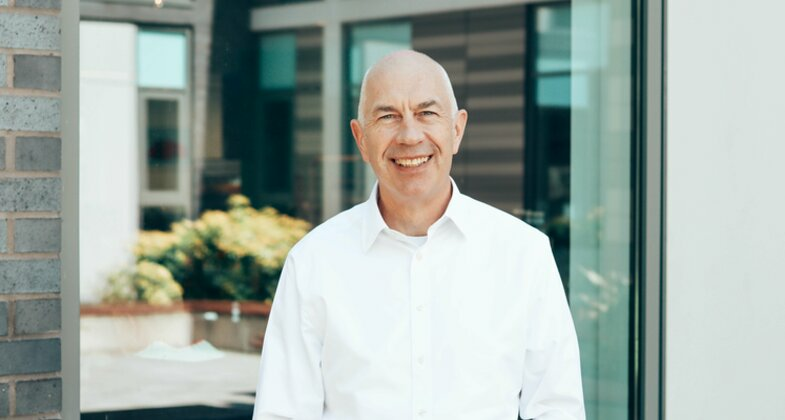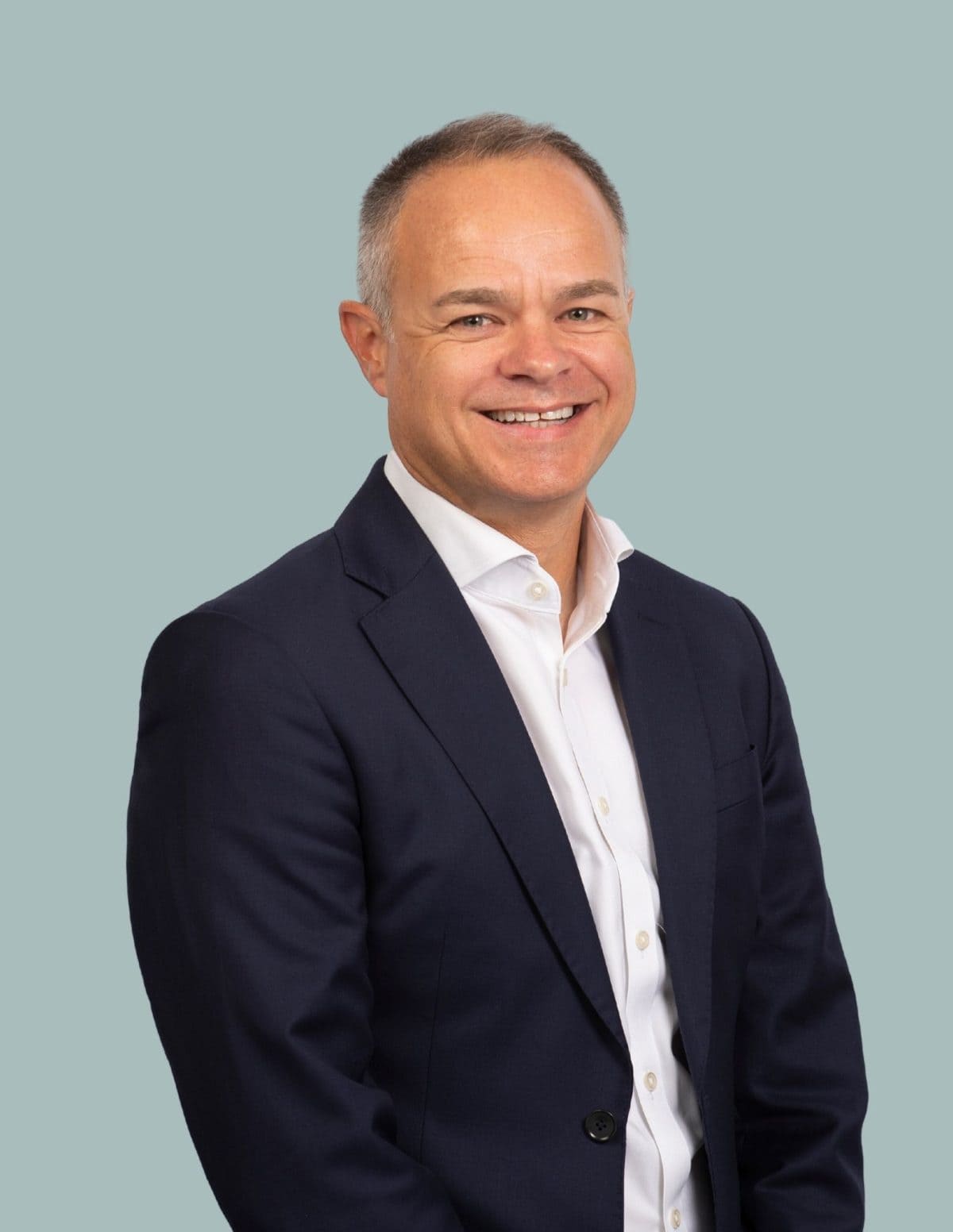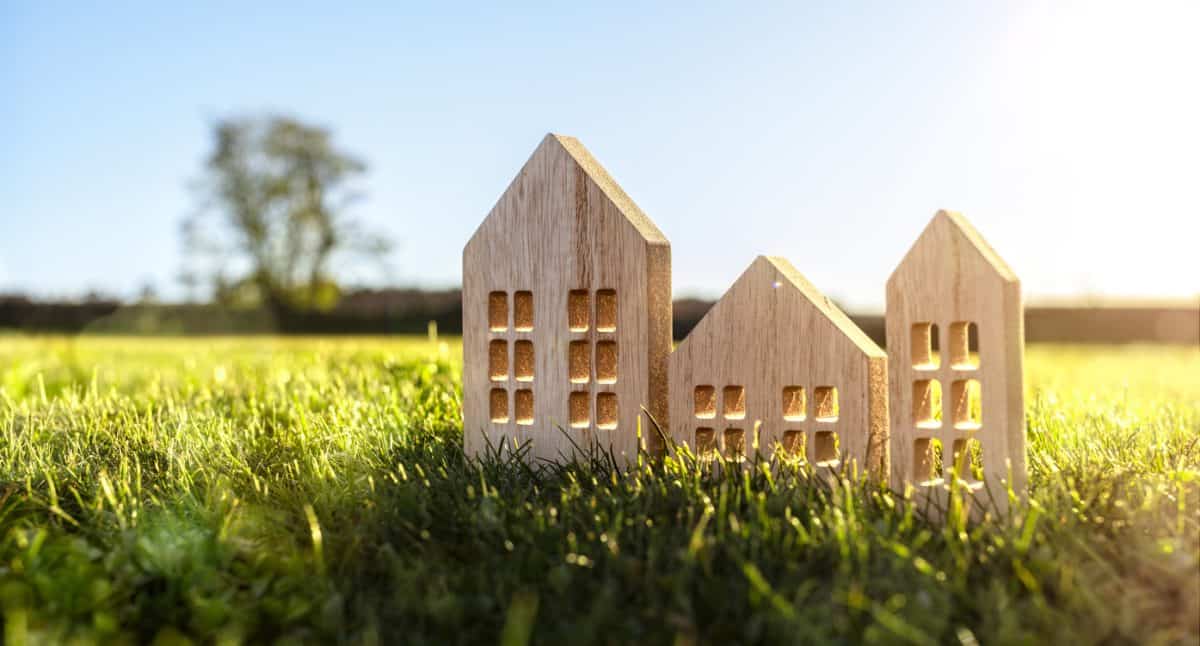Five minutes with…David Done OBE, Chief Executive of Richmond Housing Partnership

In our latest edition of ‘Five minutes with…’, we discuss the topic of customer experience and sustainability post-COVID with David Done OBE, Chief Executive of Richmond Housing Partnership. David has been passionate about developing new ways of working within Housing. Richmond Housing was one of the first to go fully digital in 2016 driving through new technologies for their customers.
What have been your biggest learns during the course of the crisis and what, in hindsight, would you have done differently?
One of our biggest learns for me over this period has been the power of uniting people through purpose.
What we have found is that providing people with a collective cause is even more crucial during a time of crisis. So, through all of our communications we have been continuously coming back to why we are making the choices and changes we are – to keep our customers and each other safe, and to provide the best services we can.
Another learn has been how important it is to protect our culture at all costs. I know that to continue delivering for our customers we must nurture what makes our organisation special, which is the people who we work with. For us this has means demonstrating we care about them – during this period we have consistently highlighted all of the support on offer including access to our Mental Health First Aiders. It also means showing appreciation and saying ‘thank you’ often – we have continued to hold our recognition events such as quarterly online spotlight awards and have also introduced e-thank you cards and gifts.
Another element of our culture which has been particularly important for us to retain is the strong sense of camaraderie that runs throughout the organisation – that we take our jobs seriously, but never ourselves. Therefore, we have been working hard to keep people connected and create times when people can still have fun together – the most popular event being virtual bingo!
My third learning is about communication and that you are only communicating enough when it feels like it is too much. Since the start of lockdown, I have been doing live weekly video briefings, using the live event function on MS Teams, and a daily blog on Yammer to help people stay informed and engaged. We are constantly reinforcing key messages to employees through FAQs, huddle activities, Yammer campaigns and our weekly e-newsletter.
The same is of course true for customers so we have been making sure we communicate with them regularly and clearly through a range of digital and non-digital channels. I believe we have done this well since lockdown. However, one of the things I think we could have done differently was to increase these conversations much sooner when COVID-19 was first beginning to progress in late February and early March.
What do you think the Social Housing sector has learnt about itself in the last two months?
It is very true that it often takes a crisis to bring out the very best in people, and I think this is definitely true for our sector.
The last few months have been a powerful reminder of just how important what we all do is to the people and communities we serve – and the social purpose we are all driven by. I’ve been truly inspired by the way our people have gone above and beyond – whether that be the many volunteers who regularly check-in on customers over 70, our caretakers delivering food parcels to the vulnerable, or our Retirement Scheme Managers putting activity packs together to keep residents of retirement living occupied whilst we can’t maintain communal activities. I know our employees are not unique in having this special character, and that this is reflected right across the whole sector – for me this is what makes the housing sector so special.
It is also shown how incredibly adaptable we can all be. We all had very little time to move to remote working and to change our services – and from what I have heard this has on the whole, been pretty smooth for the whole sector. We were fortunate at RHP to already have strong foundations in place through our flexible working programme ‘Your work, your way’ which has enabled greater flexibility across the whole organisation over the past 12 months. We have worked hard to shift attitudes around working in a more agile way and introduced some useful tools to support this (most notably MS Teams over a year ago and more recently remote telephony to support our traditionally office-bound contact centre). These strong foundations have enabled us to focus on the most important things quickly, with minimal disruption to our service.
Moving forwards, what do you believe the ’new normal’ will be for the sector?
For us instead of going back to a ‘new normal’, we are talking about going ‘back to better’. There have been many positives to come out of these turbulent times and I believe it is incredibly important as a sector that we do not let the learning go to waste.
The increased flexibility that people have now got used to in how they work will help turbo-charge plans that I know many organisations have to become more agile. This in turn will help us to offer a more flexible service with enhanced choice for customers (e.g. increased or different operating hours).
I also think it has created space for organisations to re-think their operating models and how they do things – I believe we will see a great deal of innovation come out of this period. Our innovation programme ‘Leading Lights’ has gained momentum over the past couple of months giving a particular focus to service design and how we can make incremental changes to improve both the customer and employee experience.
Ironically as we are apart, I also think it will help us talk more as a sector. At RHP we’ve always been good at sharing learning across the housing world – however I think this will bring us even closer together working towards a common goal of how we can emerge stronger out of this for the good of all our employees and customers.
How are you embracing new technologies to improve the customer experience? And has the pandemic had an effect on the type and pace of digital transformation?
We are fortunate to be ahead of the curve in terms of digital transformation, having introduced our ground-breaking digital housing service RHPi back in 2016. This means customers have access to a range of self-service options – with around 60% of them already familiar with carrying out transactions online such as booking a repair appointment or paying their rent.
During lockdown, we successfully put into place a new cloud-based telephony system, which has enabled us to deliver full contact centre capability from people’s homes, helping us deliver a more seamless service.
We’ve also not halted work on developing a new website – drawing upon customer feedback to improve their experience, including being able to access key services in as few clicks as possible. In addition, we are exploring how we can keep customers better informed about repairs, inspections, and payments.
The pandemic has certainly encouraged us to build on and accelerate our digital strategy. At the core of it, we will ensure that whatever technology we introduce, it will always start with a clear understanding of what the people (our customers and employees) who actually use it most want and need.
As a sector, we need to push forward and drive the zero-carbon agenda; what innovative ways are RHP adopting and what are your goals to achieve in the future?
We are pursuing a range of solutions to better understand our homes and how our customers use them – with the aim of reducing our carbon emissions.
Most notably we have formed our ‘Project 2030’ taskforce who are looking at how we can make all of our homes achieve an efficient ‘EPC energy rating’. An external company will be auditing our housing stock – we will then use their findings to put into place an action plan to improve energy efficiency in a targeted way.
We have also been an early adopter of emerging carbon efficient measures in our new homes. This includes using MVHR units, which pump old air out of homes and bring in new fresh air, this makes a real difference with energy emissions.
Additionally, we hope our SMART home technology trials will result in lower carbon emissions. For example, this technology will tell us if a repair needs to be carried out and will also diagnose what work is required at a level of sophistication that someone who is not a tradesperson probably would not know. This should reduce, or even eliminate, the need for follow up appointments – saving money, increasing customer satisfaction, and reducing carbon emissions due to less travelling and more efficient appliances.
For more information, please conatct Tom Neely Tom focuses on recruiting senior management and leadership roles across Social Housing providers.



